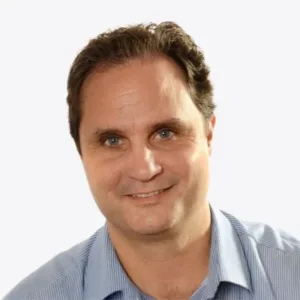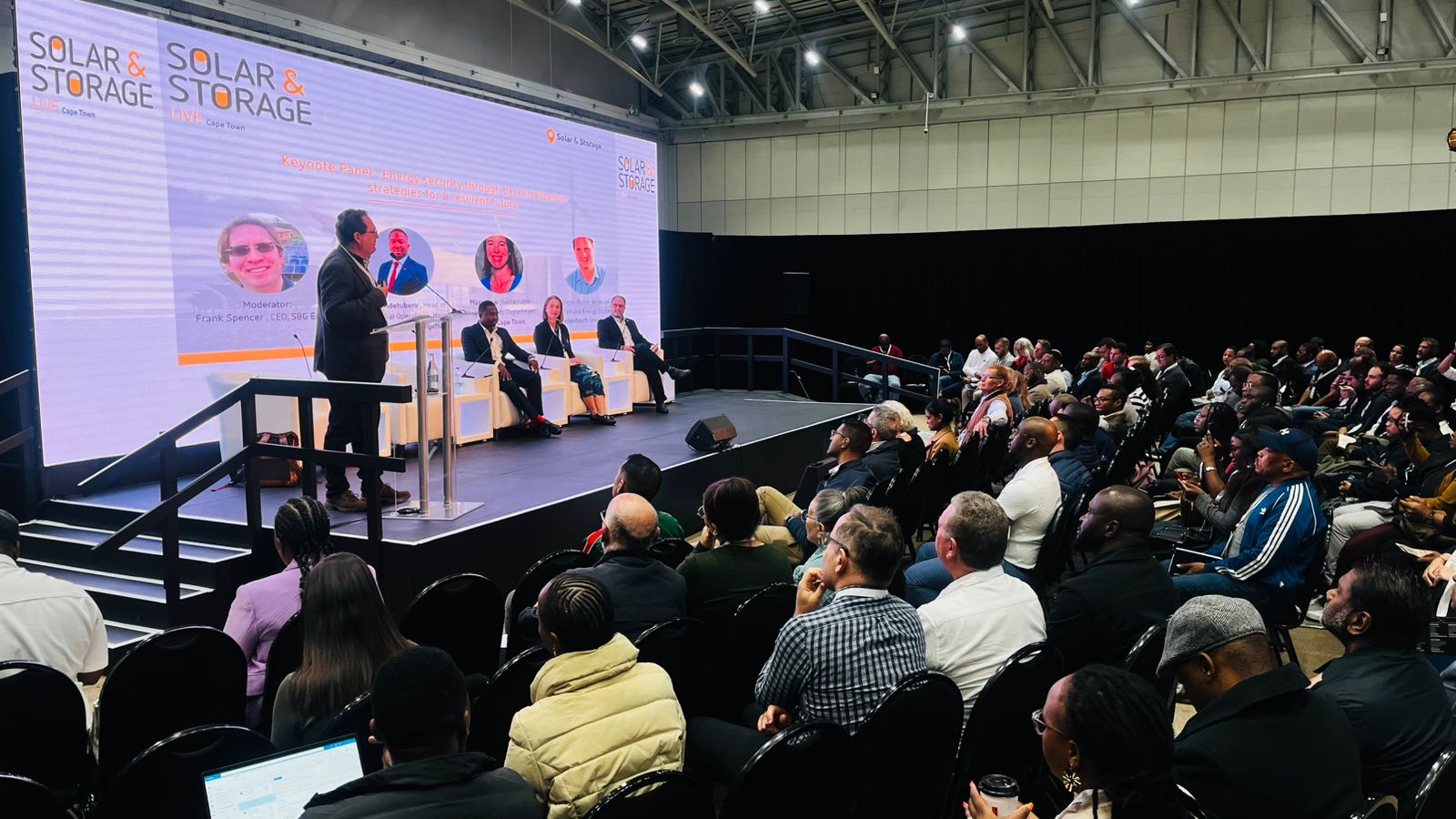Solar & Storage Live Cape Town 2025, held from 15–16 October at the Cape Town International Convention Centre (CTICC), brought together leading researchers, innovators, and industry figures from across the renewable energy landscape. Representing Stellenbosch University’s Centre for Renewable and Sustainable Energy Studies (CRSES), Dr Francois Rozon contributed to three high-level panels, offering expert perspectives on the future of intelligent grid management, decentralised energy systems, and hybrid solar-storage solutions.

Each of the panels explored different facets of the energy transition, from how digital tools are transforming power grid management to the growing role of decentralised systems in improving resilience, and the importance of hybrid technologies in stabilising renewable power generation. Together, they highlighted the technological and strategic pathways needed to achieve a more secure, efficient, and low-carbon energy system for South Africa and beyond.

Panel 1: AI-Powered Grid Analytics – Real-Time Insights for a Smarter Energy Future
In his first session, Dr Rozon unpacked the transformative role of artificial intelligence (AI) in modernising power grids and enabling a smoother energy transition. He used the well-recognised framework defining modern power grids under the “four Ds”, Decarbonisation, Decentralisation, Deregulation, and Digitisation, which are driving the need for big data, advanced control, automation, and predictive analytics within energy systems.
As renewable generation grows, grids face more dynamic and unpredictable load patterns. Dr Rozon highlighted that AI enables operators to gain sensory perception of the network in real time and supported with machine learning algorithms can improve forecasts by processing vast datasets, simplify scenarios and better anticipate issues. As the industry shifts from deterministic to probabilistic approaches, these tools reduce computational burdens while enhancing accuracy, ensuring the system remains stable even amid uncertainty.
Panel 2: Energy Security Through Decentralisation – Strategies for a Resilient Future
The second panel focused on decentralisation and its growing importance for energy security. Dr Rozon observed that the widespread adoption of solar PV across South Africa’s industrial and commercial sectors has significantly reduced national peak demand, by nearly 20% over the past fews years. Many organisations have also become more resilient to load-shedding using battery energy storage systems (BESS).
He explained that the combination of PV and BESS not only enhances reliability but also enables businesses to manage tariffs more effectively, shifting energy usage to lower-cost periods and avoiding peak charges. “Battery systems offer both energy security and financial efficiency,” said Dr Rozon, “delivering paybacks of two to three years for many larger installations.”
Transmission constraints, he noted, are another key factor driving decentralised systems closer to demand centres. Independent Power Producer (IPP) agreements play an essential role in reducing carbon emissions and energy costs, but need to be supported by better grid infrastructure, while future regional interconnections promise to strengthen grid resilience at national and continental levels.
Drawing on his involvement in the Technical University of Munich’s SEED Programme (Sustainable Energy, Entrepreneurship, and Development), Dr Rozon shared international examples of community-level mini- and microgrids that have catalysed local economic activity, from food processing and cold storage in rural areas to electric mobility and charging infrastructure at a local level.
Panel 3: Hybrid Solar-Storage Plants – Smarter Pairing for Grid Stability and Energy Security
Dr Rozon’s final panel addressed the role of hybrid solar-storage systems in enhancing grid flexibility and reliability. He emphasised that while battery energy storage systems have limited capacity, they are ideally suited to manage daily renewable energy variability. “In every scenario we’ve modelled, from facility-level to national scale, BESS has proven critical for balancing generation and demand,” he noted.
Rapid cost declines have accelerated the deployment of large-scale utility BESS installations, but Dr Rozon also acknowledged the need for longer-term storage to address seasonal fluctuations, particularly during low-wind periods in South Africa between April and June, as modelled by the late Dr Clark from the Solar Thermal Energy Research Group.
He underscored the complementary roles of pumped hydro, gas, and even coal life-extension under reduced load, as part of a pragmatic transition strategy.
In discussing solar thermal technologies, Dr Rozon highlighted that while declining PV costs have shifted the balance toward PV-to-heat systems, solar thermal remains viable in specific use cases, particularly against liquid fossil fuels or electricity or against coal where subsidy support is available. He added that advances in heat pumps (with high coefficients of performance) and thermal storage make PV-driven heating systems increasingly cost-effective for achieving near-term emission reductions.
Driving the Transition Through Innovation and Intelligence
Across his three sessions, Dr Rozon had a unifying message: South Africa’s energy transition depends on intelligent systems, decentralised design, and integrated electricity and thermal energy solutions. From AI-driven analytics to hybrid solar technologies, innovation must serve both sustainability objectives and real-world reliability.
CRSES continues to contribute to a smarter, more resilient, and inclusive energy future for the region, by combining cutting-edge research, data-driven insight, and practical field experience.


